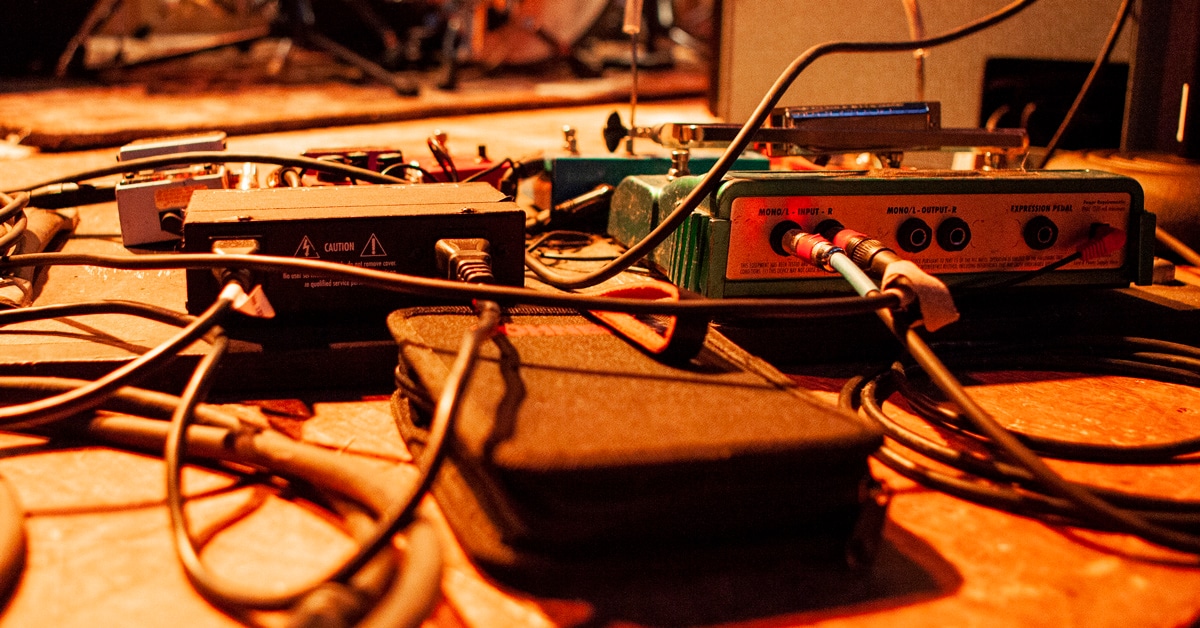The buzzing sound from a car stereo can be caused by a loose or faulty connection. To fix it, check and tighten all connections and cables, and consider replacing any damaged components.
Now let’s dive into the possible causes and solutions for car stereo buzzing. Driving down the road, jamming to your favorite tunes, when suddenly, an annoying buzzing sound ruins your musical enjoyment. You wonder, “Why does my car stereo make a buzzing sound?
” Don’t worry, you’re not alone. This common issue can be caused by a variety of factors, ranging from simple fixes to more complicated solutions. We’ll explore the potential causes of buzzing in your car stereo and provide some helpful fixes to get your audio system back on track. Whether you’re a car audio enthusiast or just looking to enjoy quality sound during your commute, understanding and resolving this buzzing noise is crucial. So, let’s get started.

Credit: m.youtube.com
Causes Of A Buzzing Sound In Car Stereo
There is nothing more frustrating than trying to enjoy your favorite tunes on a long car ride, only to be interrupted by a buzzing sound coming from your car stereo. This irritating noise can quickly turn a pleasant drive into a headache-inducing experience. But fear not, as we are here to shed some light on the causes of this buzzing sound and provide you with some simple fixes. In this section, we will explore the two main culprits behind the buzzing sound in car stereos: electrical interference and grounding issues.
One of the primary causes of a buzzing sound in your car stereo is electrical interference. This occurs when external electrical signals mix with the audio signals within your stereo system, resulting in interference that manifests as a buzzing or humming noise. The following factors can contribute to electrical interference:
- Loose or damaged cables: When the cables connecting your stereo to the speakers or other devices are loose or damaged, it can lead to electrical interference. Checking and tightening all connections can often alleviate this issue.
- Magnetic fields: Strong magnetic fields, such as those created by nearby electronic devices or power lines, can also interfere with your car stereo and cause buzzing sounds. If you suspect a magnetic field is the culprit, try moving your car to a different location.
- Poorly shielded cables: Cables that are not properly shielded can pick up external electrical signals, resulting in interference. Consider upgrading to higher-quality shielded cables to mitigate this problem.
Another common cause of buzzing sounds in car stereos is grounding issues. A proper grounding connection ensures that all electrical components in your car receive an equal voltage, preventing the introduction of unwanted noise. Here are some common grounding issues that can result in buzzing sounds:
- Loose or corroded ground connections: Over time, ground connections can become loose or corroded, leading to poor grounding. Inspect and clean all ground connections to ensure they are secure and free from corrosion.
- Insufficient grounding: In some cases, the grounding system in your car may be inadequate, resulting in buzzing sounds. A professional car audio technician can assess your car’s grounding system and make any necessary upgrades.
- Ground loop interference: A ground loop occurs when there are multiple ground points in an audio system, causing a difference in electrical potential. This can lead to buzzing sounds. Ground loop isolators are available to help eliminate this issue.
By understanding these common causes of buzzing sounds in car stereos, you can now take the necessary steps to fix the issue and enjoy uninterrupted music during your drives. Whether it’s checking and tightening connections, upgrading cables, or addressing grounding issues, taking action will help restore your car stereo to its optimal performance. Stay tuned for the next section, where we will delve into the various fixes for buzzing sounds in car stereos.
Electrical Interference
Electrical interference can be a common cause of the buzzing sound you may hear from your car stereo. This interference can arise from various sources, leading to a frustrating auditory experience. Understanding the potential culprits and their remedies can help you address the issue effectively.
Loose Connection
A loose connection within the car stereo system can lead to electrical interference, resulting in a buzzing sound. When the wiring connections become loose, they can create a poor electrical connection, leading to disruptions in the audio signal.
Faulty Wiring
Faulty wiring in the car stereo setup can also lead to buzzing sounds. Damaged or frayed wiring can introduce interference into the audio system, causing disruptions in the sound quality. It is crucial to inspect the wiring for any signs of damage and address any issues promptly to alleviate the buzzing sound.
Grounding Issues
Grounding issues are one of the common reasons why your car stereo might make a buzzing sound. A poor ground connection or a ground loop can cause unwanted electrical interference, resulting in a buzzing noise. Understanding these grounding issues is crucial for troubleshooting and finding the appropriate fixes for your car stereo. Let’s explore each of these issues in detail:
Poor Ground Connection
A poor ground connection can lead to electrical inconsistencies within your car’s audio system, causing buzzing noises. This occurs when the ground wire that connects the stereo to the vehicle’s chassis or ground point is loose or faulty.
To fix this issue:
- First, locate the ground wire attached to the back of your car stereo. It is typically black or brown in color.
- Ensure the ground wire is securely connected to a metal part of the vehicle’s chassis, preferably using a bolt or screw.
- Check for any loose connections or corrosion that might hinder the grounding process. Clean them if necessary.
- Ensure the ground wire is not damaged or frayed. Replace it if needed.
- Double-check the ground wire connection to ensure it is tight and secure.
Ground Loop
A ground loop can occur when there are multiple grounding points in your car’s audio system, resulting in a buzzing sound. These additional grounding points lead to a difference in electrical potential, causing interference.
| Signs of a ground loop: |
|---|
|
To resolve ground loop issues:
- Identify the additional grounding points in your car’s audio system. These could be other components or aftermarket accessories.
- Disconnect and isolate each grounding point, starting with aftermarket accessories, to identify the source of the ground loop.
- Once the source is found, use a ground loop isolator to break the loop and eliminate the buzzing sound.
- Install the ground loop isolator between the head unit and the source of the ground loop. Follow the manufacturer’s instructions for proper installation.
- Re-test your car stereo for any buzzing noise. If the problem persists, consult a professional for further assistance.
By addressing poor ground connections and ground loop issues, you can effectively eliminate the buzzing sound in your car stereo. Taking the time to diagnose and fix these grounding problems will ensure an optimal audio experience on your journeys.

Credit: www.amazon.com
How To Fix A Buzzing Sound In Car Stereo
Experiencing a buzzing sound when listening to music or radio in your car can be annoying and distracting. Fortunately, there are several steps you can take to fix this issue and enjoy crystal-clear audio in your car. By checking electrical connections, repairing faulty wiring, and improving grounding, you can eliminate that buzzing sound and enhance your driving experience. Read on to learn how to fix a buzzing sound in your car stereo.
Check Electrical Connections
To begin troubleshooting the buzzing sound in your car stereo, start by checking the electrical connections. Often, loose or poorly connected wires can cause interference and buzzing noises. Here are some steps to follow:
- Turn off your car stereo and disconnect the power source.
- Inspect the wiring behind the stereo unit and ensure that all connections are secure.
- If you notice any loose or damaged wires, gently reconnect or replace them.
- Make sure that the positive and negative terminals are properly connected to the battery.
- Once you have checked and secured all the electrical connections, reconnect the power and test your car stereo.
Repair Faulty Wiring
If checking the electrical connections didn’t resolve the buzzing sound issue, it’s time to inspect the wiring for any faults. Faulty wiring can cause electrical disturbances and result in unwanted buzzing in your car stereo. Here’s what you can do to address this problem:
- Identify any damaged or frayed wires in the car stereo system.
- Use electrical tape or wire connectors to securely fix any exposed or damaged areas.
- If you’re uncertain about the complexity of the repair, consult a professional car stereo technician.
- Remember to disconnect the power source before starting the repair process.
Improve Grounding
Poor grounding is often a culprit when it comes to buzzing sounds in car stereos. By improving the grounding of your car stereo system, you can reduce or eliminate the buzzing altogether. Follow these steps to improve the grounding:
| Steps | Description |
|---|---|
| 1 | Disconnect the negative terminal of your car battery. |
| 2 | Identify a solid metal grounding point near the stereo unit. |
| 3 | Scrape away any paint or debris from the grounding point to ensure a clean connection. |
| 4 | Attach a grounding wire to the stereo unit and connect it securely to the grounding point. |
| 5 | Reconnect the negative terminal of the car battery. |
Improving the grounding of your car stereo should help eliminate the buzzing sound. If the issue persists, it’s best to have a professional inspect your car stereo system for any deeper electrical problems.
By following these steps to check electrical connections, repair faulty wiring, and improve grounding, you can effectively fix the buzzing sound in your car stereo. Enjoy your favorite tunes and a peaceful drive without the annoyance of unwanted noise!
Tips To Prevent Buzzing Sound In Car Stereo
When it comes to enjoying music and audio in your car, a buzzing sound from the stereo can be frustrating. This unwanted noise can significantly interfere with your listening experience and may be caused by various factors. To prevent this issue, there are several tips and strategies you can employ to ensure a smooth and uninterrupted audio experience in your vehicle. Let’s explore some effective ways to prevent buzzing sound in your car stereo.
Use Ferrite Choke
One reliable method to prevent buzzing sound in your car stereo is by using a ferrite choke. Ferrite chokes are passive electronic devices that help suppress high-frequency interference in electronic circuits, including car audio systems. By attaching a ferrite choke to the audio cable connecting your stereo, you can effectively reduce electromagnetic interference and minimize the buzzing noise.
Upgrade Audio Cables
Upgrading your audio cables can make a significant difference in reducing buzzing sound in your car stereo. High-quality shielded cables can help minimize interference from external sources, resulting in clearer and crisper sound quality. Consider investing in premium audio cables with proper shielding to ensure a superior listening experience without the annoyance of buzzing noise.

Credit: www.guitarcenter.com
Conclusion
Identifying the source of the buzzing sound in your car stereo is crucial for a better driving experience. Whether it’s a loose connection or a defective component, quick action can prevent further damage. By understanding the causes and implementing the suggested fixes, you can enjoy a clear and undisturbed audio experience on the road.


